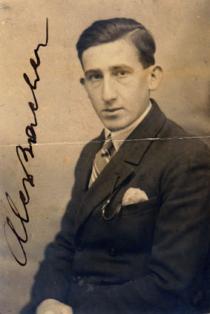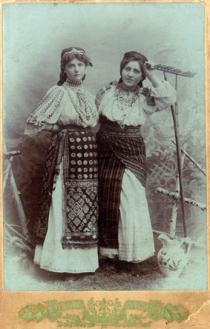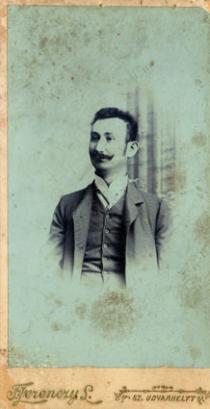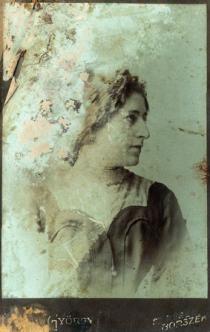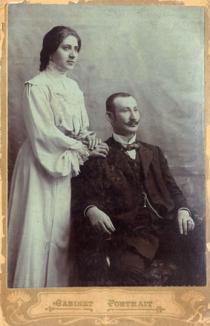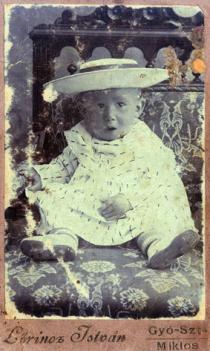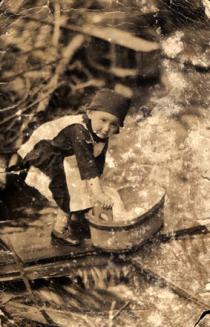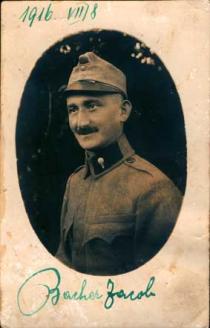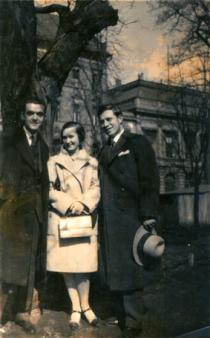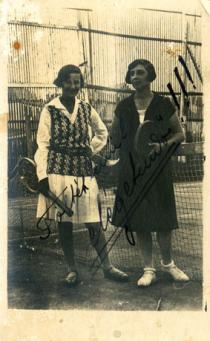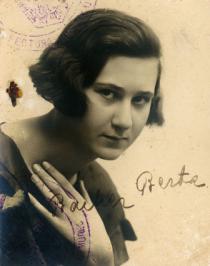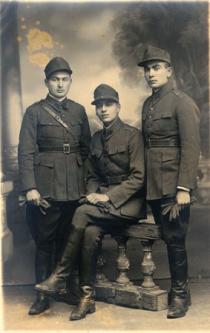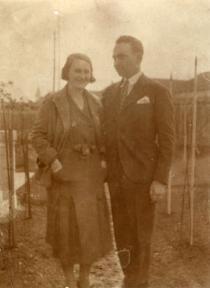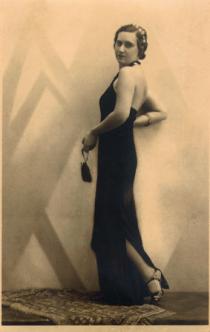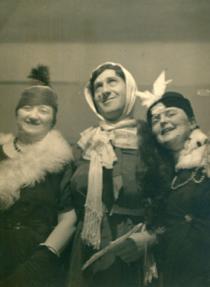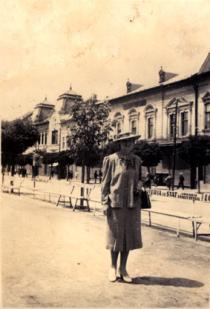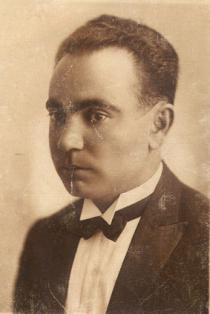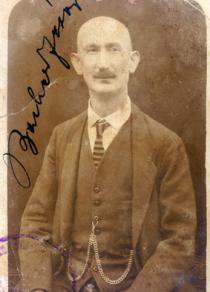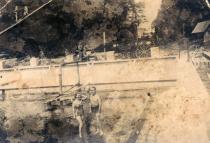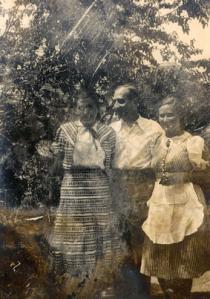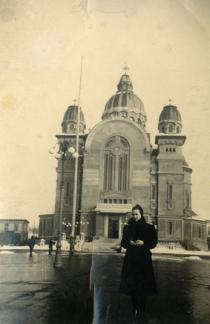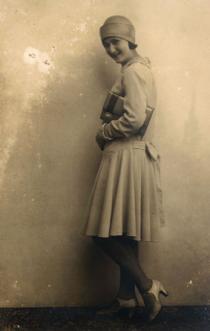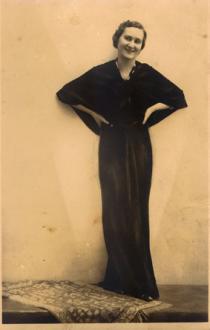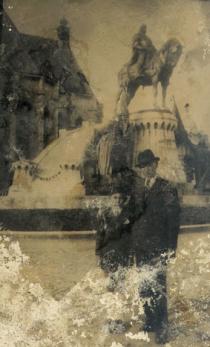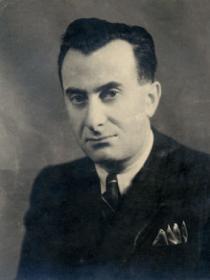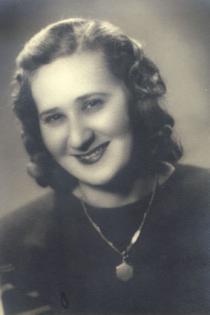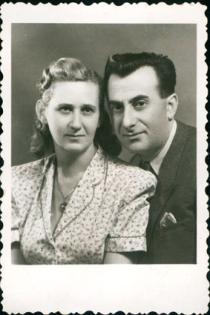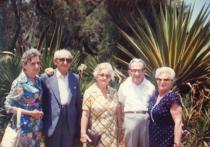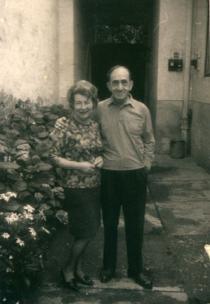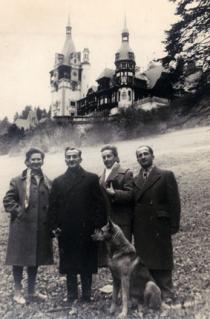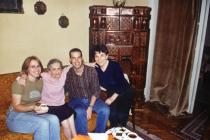This is my brother. He was born in 1905. His name was Sandor Bacher.
‘My dear Sanyika, I hope you’re not upset on me, because I’m worried about you’ - this is written on the back of the photo, but I don’t know who wrote it and for who.
My brother passed the final examination here [in Marosvasarhely], at the catholic gymnasium. When we were both here in Marosvasarhely for a short time, he was blackmailing me as well. He got pocket money, I got too separately, because we stayed at different families, not at the same. I hated mathematics. 'My dear Sanyi, take a look [at my mathematics home-work].' 'You have pocket money, I want one lei.' He did it, but I had to pay. I gave him, let's say one lei. He came every third day, and he did all my math home-work. This cost me much more later. As he was older, he took his final examination at the end of the 1920s, and he left, he went to Vienna to study. I stayed here, and stupid me, I didn't even know how much two times two was; I didn't have any grounds. Thus I had had only ten in math, then I failed. [Editor's note: In the Romanian educational system ten is the best mark and four means unsatisfactory.] After a while he discovered where I was keeping my money, and he stole from it, because he loved to play billiards. Every evening I counted my money like a niggard, and once I tell to the woman [where I stayed] 'Madam, my money is wanting.' She says, 'My child, I didn't touch it surely.' And she added: 'Listen, Sanyika was here in the after-noon. And yesterday after-noon as well.' I wasn't at home then. He came when I was at piano lesson in the after-noon, at the conservatory. As I always had piano-lessons in the after-noon, in the morning I went to school. And that's how it came to my mind that it was likely that he had stolen from my money.
After that my brother was sent to study to Vienna. He didn't want to go to university, he adored the wood industry. He said he didn't want to be sent to university, because he wanted to work in the wood industry, he adored woods, he adored timber. But my father kept on repeating: 'High school degree? I have a high school degree, let my son have a superior education!' So he went to Vienna and enrolled to the academy of commerce. He said in vain: 'Daddy, I won't go to university, I want to work in the wood industry!' Daddy used to tell me as well: 'My child, I don't mind if you get married to a shoemaker, but not to someone in the wood industry! Because wood doesn't grow on the asphalt. Thus you have to live your life in a forest or village.' My brother wouldn't listen to it. In his fourth year daddy went to Vienna to visit his son and to take a look at his course record. There was nothing written in it. He says: 'How's that? Aren't you attending the university? Pack up and come home.' So daddy was very strict and very determined. Anyway, he made the profit out of this on the 'ladies', that he learnt English and German perfectly. My father said: 'It was quite an expensive course, you could have learnt German much cheaper in Szeben or even in Brasso.' However he saw the world, more than in Gyergyovarhegy. My unfortunate brother was in Auschwitz and in Ukraine too, and in all that misery this [the knowledge of languages] helped him out a little.
Later, after he came home from Vienna, my brother was employed at an enterprise, next to daddy, but daddy never wanted his son to be close to him. That is he never wanted to grant him backing. My brother was everywhere: in Szeben, there was a factory next to Szeben, the same rich man owned it, the place was called Talmacs [Talmaciu in Romanian], where the factory was, it was close to Szeben. So he went to Szeben every weekend. It had the great advantage that it was a completely German town. And my father asked the management - as my brother was persistent in his will to work in the wood industry - to send him to learn all the branches of this profession, starting from felling the trees to the shipping. Thus he was in Galati and Constanta too. He got back step by step, so when my father was in Toplica, he worked in Gyergyovarhegy. And after my father got ill, he couldn't go on, they exchanged them, my father moved back to Gyergyovarhegy, and my brother took his place. He wasn't appointed as a manager, yet he fulfilled my father's duties. My poor father died there in Gyergyovarhegy, in 1938, he got a heart attack. At that time I was married already in Marosvasarhely. Daddy visited us two weeks before. War-related troubles had already begun. In 1938 we were having fun here, we were dancing, but the war had already begun.
As grown-ups my brother and I adored each other. He had problems with women, because he was a lady-killer. 'I'm in trouble, dear Bellus, Emilia is pregnant.' He was a clerk, he didn't have money, and the woman blackmailed him that she was pregnant, but in fact she wasn't. So I gave him money for the abortion.

